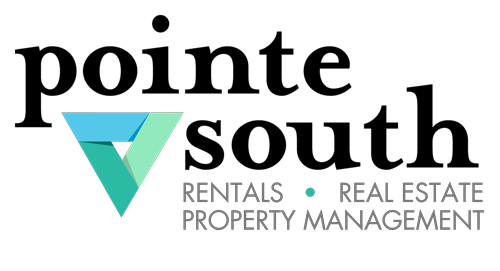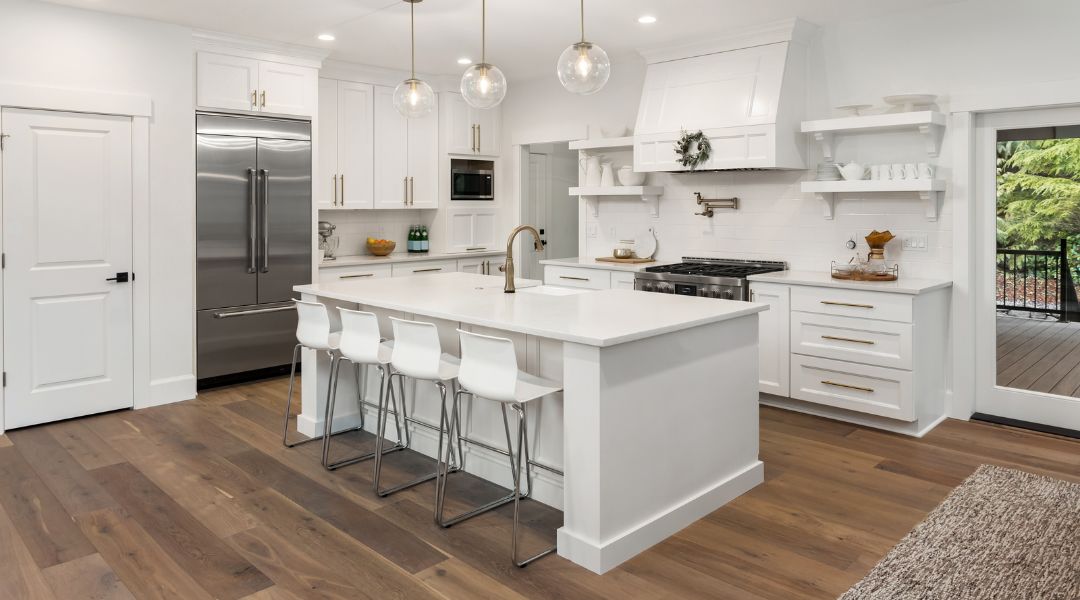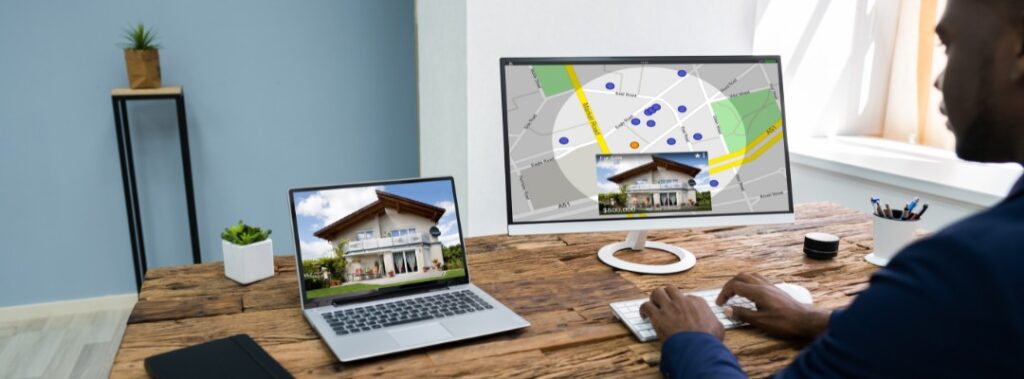In real estate, renovating your property isn’t just about aesthetic enhancements or modernizing interiors; it’s an investment strategy with the potential to significantly boost the property’s value. Renovation projects, when executed thoughtfully, can yield impressive returns on investment (ROI) and elevate the overall appeal of a property in the eyes of potential buyers or investors. Here are nine compelling reasons why renovating your property can be a savvy financial move.
- Enhanced Curb Appeal: First impressions matter, and a well-maintained exterior can immediately captivate prospective buyers or investors. Renovations such as landscaping, exterior painting, or updating the front facade can enhance curb appeal, making your property stand out in a competitive market.
- Increased Market Value: Renovations that improve the functionality, aesthetics, or structural integrity of a property often lead to an increase in its market value. Upgrading outdated features, such as kitchen appliances, bathroom fixtures, or flooring, can attract buyers willing to pay a premium for modern amenities.
- Competitive Advantage: In a saturated real estate market, renovated properties tend to command higher prices and attract more interest buyers compared to their unrenovated counterparts. Renovations differentiate your property from others in the area, giving you a competitive edge and maximizing your potential for a profitable sale or rental.
- Higher Rental Income: For property investors, renovated properties can justify higher rental rates. Tenants are typically willing to pay more for upgraded living spaces with modern conveniences and improved functionality. Renovations that enhance energy efficiency or add desirable features can justify higher rental income and attract quality tenants.
- Reduced Time on the Market: Renovated properties often spend less time on the market compared to those in need of updates or repairs. A well-executed renovation can make your property more attractive to buyers or renters, resulting in quicker transactions and minimizing holding costs.
- Future-Proofing Investment: Investing in renovations allows you to future-proof your property by addressing maintenance issues and incorporating durable materials or technologies. By proactively addressing potential concerns, such as plumbing or electrical systems, you mitigate the risk of costly repairs down the line and protect your investment.
- Expanded Market Reach: Renovations can broaden the appeal of your property to a wider audience of potential buyers and investors. Features like open-concept layouts, updated appliances, or sustainable design elements can attract interested buyers, maximizing your property’s market reach and resale potential.
- Positive Return on Investment (ROI): While renovations require upfront investment, they often yield a positive ROI, especially when strategic upgrades are made. Assessing the cost-benefit ratio of renovation projects and focusing on improvements that offer the highest ROI ensures that your investment translates into tangible value appreciation.
- Adaptation to Changing Lifestyle Trends: Renovations offer an opportunity to adapt your property to evolving lifestyle trends and preferences. As living habits shift, updating your property to align with current trends can ensure its relevance and appeal to prospective buyers or investors. Whether it’s creating versatile multi-functional spaces or incorporating home office setups, staying attuned to changing lifestyle preferences through renovations positions your property as desirable and future-ready in the real estate market.

What Property Renovations Should I Focus On First?
We could all assume that property renovations will help with ROI for property value, but where to start? Let’s go over the cost of the renovation compared to the return to see what you want to upgrade in your home first.
Ceilings & Flooring Make Big Impacts with Renovations
Ceilings, often referred to as the “fifth wall,” offer untapped potential for creativity and sophistication. Beyond removing popcorn or a simple coat of paint, ceiling treatments such as crown molding, coffered ceilings, or tray ceilings can add architectural interest and elevate the perceived height of a room. Incorporating decorative ceiling tiles or exposed beams can infuse character and charm into any space, creating a focal point that draws the eye upward and adds visual intrigue.
Similarly, flooring serves as the foundation of a room’s design, setting the tone for the entire space. Whether opting for hardwood, tile, laminate, or carpet, the choice of flooring material significantly impacts the style, functionality, and perceived value of a home. High-quality flooring that seamlessly transitions between rooms enhances flow and cohesion, creating a sense of unity and spaciousness. Additionally, investing in durable, low-maintenance flooring options ensures longevity and reduces the need for frequent replacements, providing long-term value for homeowners.
What are the Average Costs for Ceiling & Flooring Renovations in 2024?
The average cost for ceiling upgrades ranges from $300-$600 per 12×12 room. Depending on the type of upgrades required, this can vary.
The average cost of flooring upgrades is about $3,000 per 500 sq. ft., but this ranges drastically depending on material and cost of labor. Sometimes it’s as simple as removing outdated carpet to find you have hardwood flooring underneath!
Lighting Upgrades for a Cost-Efficient Return
A very cost-effective renovation is upgrading your lighting, not only is it low in cost as compared to larger renovations, it will immediately make the design feel more modern and welcoming. Recessed lighting and intriguing light fixtures will change the ambiance of the entire property, and if you switch to energy-efficient or smart technology, it will attract investors more quickly than outdated light fixtures.
What’s the Cost on Average to Replace Light Fixtures in 2024?
The cost on average to replace light fixtures is anywhere from $700 – $3,000, but depends greatly on how much construction is involved and what fixtures you’re installing.
Bathroom & Kitchen Renovations: High-Value with High-Costs
While bathroom and kitchen renovations may involve higher upfront costs, their potential for high returns and numerous benefits make them worthwhile investments for homeowners seeking to maximize the value and appeal of their properties. With careful planning, budgeting, and strategic decision-making, these projects can deliver lasting value and satisfaction for years to come.
How Much Are Bathroom & Kitchen Renovations on Average?
The most costly part of a Bathroom remodel is going to be the plumbing and the flooring. The average price varies greatly, but you can expect to pay an average of about $6,000.
Kitchens are a bit more tricky because now we’re talking about renovations plus appliances. Kitchen renovations can be the highest cost in any property, ranging from $10,000 – $30,000. The unique factor to think about in a kitchen reno is the cost of custom cabinetry, which can quickly take an average cost renovation and amplify it greatly.

Are You Struggling With Your Property Improvement Goals?
Sometimes understanding what you should and should not be focused on with property renovations can be daunting. Should you spend thousands of dollars upgrading, or would it be better for you to sell your property as is? If you want answers to questions like these, start with our property estimate tool. This will give you a great starting point to see if you like the number you’re at, or if it would benefit you to make some renovations.
How Do I Know What Moves to Make When Renovating Or Selling My Property?
Speaking with a professional real estate agent is your best bet for understanding the market conditions and your next moves when it comes to the ROI of your property. A real estate agent can help you with inside information such as the best times to renovate, what you need to renovate, and what can be on hold for the buyer.
We have real estate agents who can help you make important decisions concerning your property’s value, contact us today for expert guidance, and find out why our clients call it the Pointe South difference.






